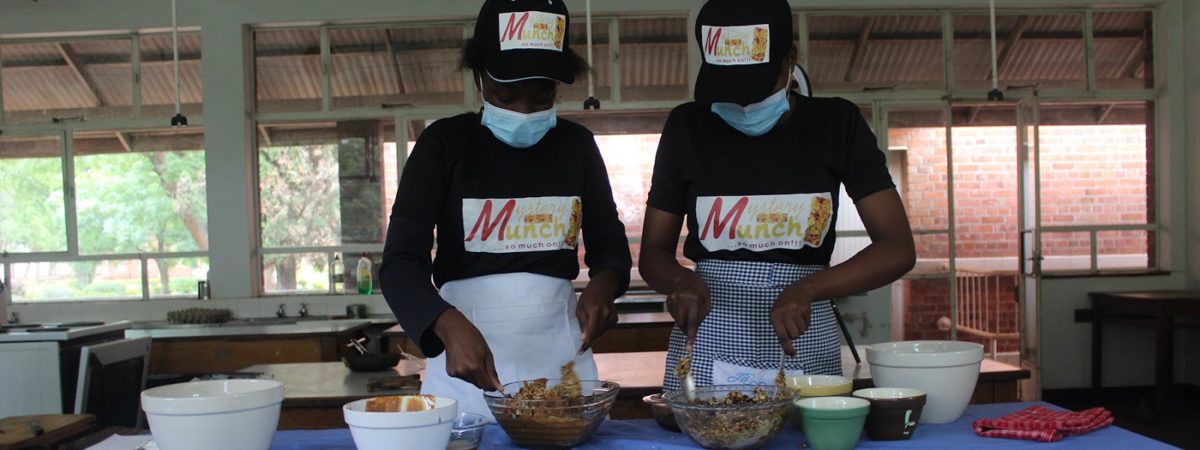
Since becoming a teacher in 2009, I have always dared to improve educational outcomes for my learners by introducing things like entrepreneurship education and financial literacy to my school. Combined with Challenge Based Learning, this type of real world learning increases learners’ motivation by pushing them to find a mission, to develop that mission, and to impact the world in the process.
“The journey has changed my perspective of life from being money-oriented to being problem solving and to realize my responsibility and duty to help save the planet and people.”
– Student

Learners discussing how to promote healthy eating among teenagers in Bulawayo, Zimbabwe. Photo credit: Jobert Ngwenya
“In Challenge Based Learning, teachers take the role of an advisor and coach, which gives learners the opportunity to lead…and to come up with appropriate solutions to the challenges that they and their peers are facing.” – Jobert Ngwenya, teacher at Eveline High School
Challenge Based Learning allows me to be a lifelong learner, not just through more common formal professional development, but everyday in the classroom alongside my students. Having grown up with technology, most of my learners have the sixth and the seventh senses that make them appreciate technology far better than I could imagine. To build on this, I encourage them to teach others—including me—whatever new knowledge and technology skills they develop. What joy this brings them to see themselves as a teacher to teachers!

Learners promoting the nutri-bar at a neighboring school and recruiting product ambassadors for the Mystery Munch Nutri-Bar. Photo credit: Jobert Ngwenya

Learners participating in the Zimbabwe International Trade Fair under the Ministry of Youth Affairs exhibition stand. Photo credit: Jobert Ngwenya

Learners organized a breakfast meeting where they shared their vision with the Bulawayo Junior City Council members from various schools in the city. Photo credit: Jobert Ngwenya
In all of these ways, Challenge Based Learning gives learners control over their own learning as well as opportunities to acquire conceptual knowledge and develop soft and hard skills. Ultimately, from my experience, the key ingredients for successful Challenge Based Learning were a supportive school environment, a strong network of community connections, engaged parents, and an educator willing to take risks to gain new understanding.